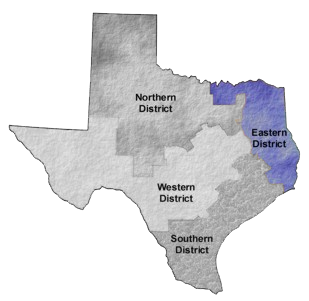Patent Trolls Target Nearly 50 Connecticut Businesses, Filing Suits in Friendly Texas Court
/“I know firsthand how detrimental patent trolls can be to small businesses, as my Connecticut small business was recently the victim of abusive patent litigation in which bad patents were used as weapons of financial intimidation against my small business. $100,000 in legal fees and ten months of litigation later, we successfully defended against these frivolous lawsuits, explained Michael Skelps, General Manager of Middlefield-based Capstone Photography recently in a published report. The New York Times has described patent trolls as “people who sue companies for infringement, often using patents of dubious value or questionable relevance, and then hold on like a terrier until they get license fees. In recent years, patent trolls — they prefer “patent assertion entities,” or P.A.E.’s — have gone from low-profile corporate migraine to mainstream scourge.”
Skelps said that “a year later, my small company is still recovering from exorbitant legal fees, none of which we were able to recoup from the legal system. As a result of the lawsuit, my mom-and-pop photography shop had to downsize from five full-time employees to three part-time. We spent the equivalent of a year’s worth of profit to defend ourselves, with no budget allocated before to legal defense.”
 While action to combat the rapidly escalating challenge to businesses of every size has been unable to navigate through a divided Congress, the problem is growing. One jurisdiction in particular is a hospitable home for the legal attacks. Federal court in the Eastern District of Texas is the epicenter of patent troll litigation, and nearly 50 Connecticut companies are among those hauled into court there under dubious circumstances.
While action to combat the rapidly escalating challenge to businesses of every size has been unable to navigate through a divided Congress, the problem is growing. One jurisdiction in particular is a hospitable home for the legal attacks. Federal court in the Eastern District of Texas is the epicenter of patent troll litigation, and nearly 50 Connecticut companies are among those hauled into court there under dubious circumstances.
The Dallas Business Journal printed what read very much like a warning to American businesses, when a commentary noted that “the Eastern District of Texas’ misguided judicial system makes the towns of Tyler, Marshall, Beaumont and Texarkana the biggest patent-troll nest in the United States, filling the coffers of these tiny towns with money legally extorted from innovators that could otherwise be used to support business growth and create new jobs.”
The Connecticut businesses range from well-known names such as Xerox, UTC, Pitney Bowes, Aetna, Starwood, Priceline, WWE, Frontier Communications and Stanley Black & Decker to dozens of lesser known names lacking the deep pockets to fight what are usually unfounded allegations. Small and medium-sized businesses – many in the tech fields - are frequently sued in East Texas even if they operate outside the state. The goal appears to be either to force them to travel to the Lone Star State to defend their business practices, or to extract exorbitant settlements as the only way to avoid the travel and legal costs.
It is those out-of-court settlements that the trolls depend on, and which are bleeding some unsuspecting businesses virtually dry. The median compensatory-damage award by East Texas judges and juries in patent cases was $8.25 million, according to the article, written by the president and CEO of the Consumer Electronics Association, a U.S. trade association representing more than 2,000 consumer electronics companies.
Six months ago, in an effort to put an end to such activities, the Judiciary Committee in Congress approved legislation that would overhaul the nation’s patent laws. That effort, however, has slowed, and ultimate passage in Congress is in doubt, according to published reports.
In Connecticut, associations and organizations including The Credit Union League of Connecticut, Connecticut Food Association and the Connecticut Retail Merchant Association have called for federal action to end patent trolling. The National Retail Federation has said that the cost of defending companies against the claims is so high — the average case costs $2 million and can take 18 months — that many victims settle out of court. The cases cost legitimate businesses close to $30 billion a year in direct costs and $80 billion indirectly, amounting to $943 a year for the average household when passed on to consumers.”
Small businesses bear the brunt of the litigation, but larger businesses are not immune. About a year ago, it was reported that “Apple must pay a shell company $532.9 million because iTunes infringes upon three patents related to online patents, a jury in East Texas ruled. The company in question … is also based in Texas and doesn’t make or do anything besides file patent lawsuits, as an Apple spokesperson pointed out, noting that the company “makes no products, has no employees, creates no jobs, has no U.S. presence, and is exploiting our patent system to seek royalties for technology Apple invented.”
By mid-2015, the U.S. District Court for the Eastern District of Texas was headed to a record year. An astonishing 1,387 patent cases were filed there in the first half of the year, according to published reports. This was 44.4 percent of all patent cases nationwide, and almost all of the growth is being “fueled by patent trolls.” Reports indicate that in 1999, only fourteen patent cases were filed there. By 2003, the number of filings had grown to fifty-five. Ten years later, in 2013, it was 1,495.
Overall, patent disputes hit an all-time high of about 7,500 cases in 2015, largely driven by patent trolls who filed two-thirds of the lawsuits, according to a report from Unified Patents. The number of lawsuits filed by non-practicing entities (NPEs), known as “patent trolls,” increased by 25 percent. Last year, patent troll filings made up 95 percent of the cases in the Eastern District of Texas.
While Congress is mired in inaction, at least one state is stepping into the fray. Virginia Attorney General Mark Herring, a Democrat who took office in 2014, announced last week a new initiative to support Virginia businesses by combating patent trolling through a newly formed Attorney General’s Patent Troll Unit.
Herring’s announcement explained that “in recent years high-tech businesses, Main Street businesses, and everything in between have become frequent targets of “patent trolls” who send bad faith demand letters, request unjustified licensing fees, and threaten baseless lawsuits. Unchecked, patent trolls and their bad faith practices stifle innovation in the Commonwealth, have a negative impact on our innovation-driven economy, and tie up the courts.” Businesses are forced to “choose between paying unjustified licensing fees and engaging in costly litigation,” the announcement stressed.
The federal Government Accountability Office (GAO), according to a Washington Post report, found that a disproportionate share of patent litigation concerns software patents. The non-partisan government agency found that the number of defendants in patent lawsuits more than doubling from 2007 through 2011. Notably, this increase is specifically related to software patents — software patents account for 89% of the increase, according to the GAO's calculations.
Said Skelps: “our current patent system is ripe for exploitation. Like the abusive patent litigation we endured, malicious actors are abusing the system and using it as a weapon against legitimate businesses, harming innovation, driving small companies out of business, and overtaxing our already overburdened litigation system.”






























